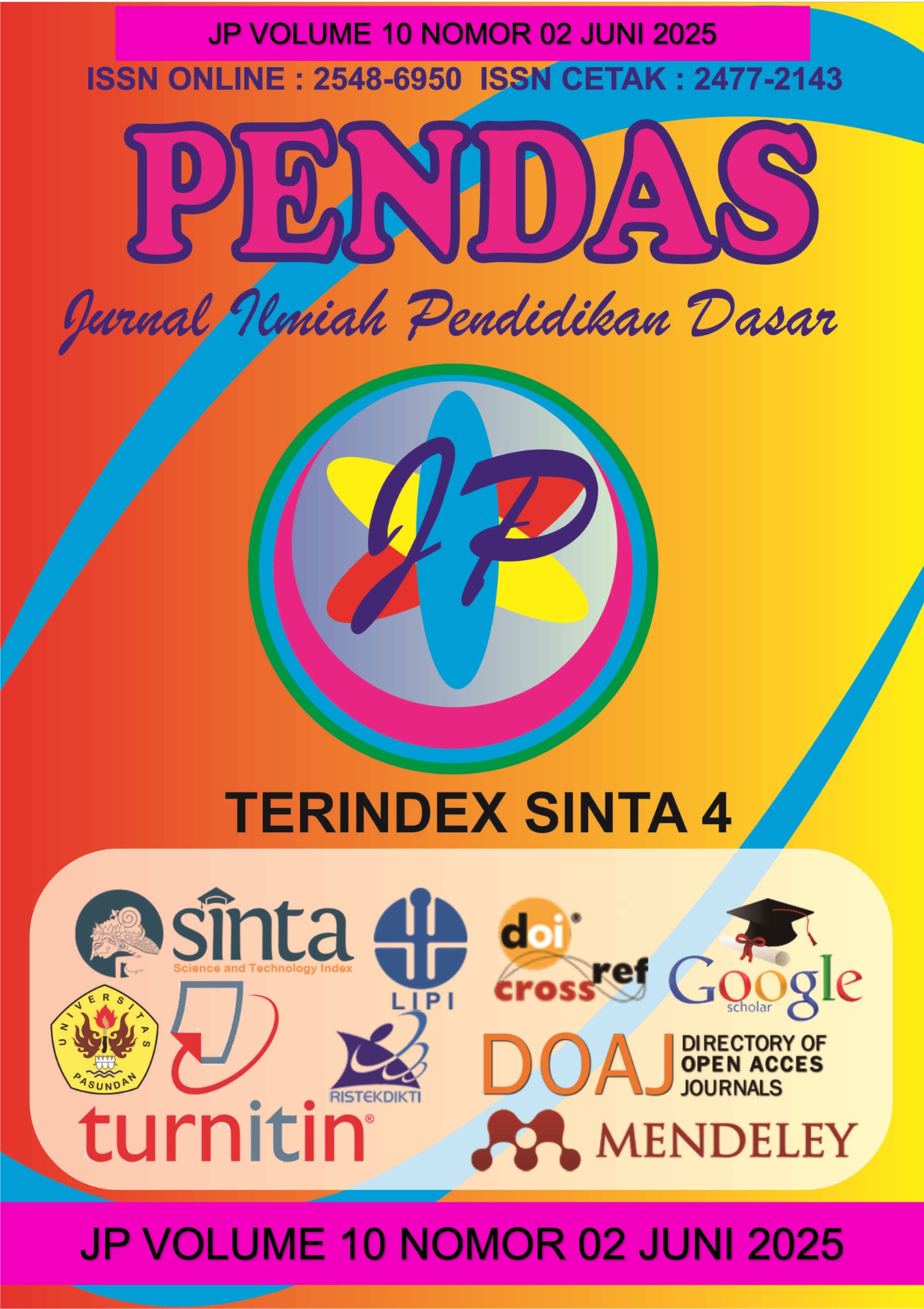KONSEP WUDHU DALAM PERSPEKTIF EMPAT MAZHAB: HANAFI, MALIKI, SYAFI’I DAN HAMBALI
DOI:
https://doi.org/10.23969/jp.v10i02.24334Keywords:
concept, ablution, mazhabAbstract
The issue of ablution remains an interesting topic of debate among Muslims, particularly in relation to the differing views of the four major madhhabs of Hanafi, Maliki, Shafi'i and Hambali. Although the basic principle of wudhu, which is to cleanse the body with water in order to perform acts of worship such as prayer, is similar in all madhhabs, there are variations in technical matters related to certain procedures and requirements. There are different views regarding wiping the head during wudhu, the opinions of the four madhhabs stem from various factors, including differences in understanding the main arguments regarding the obligation to wipe the head found in Qs Al-Maidah verse 6 and fiqh books. This study aims to analyze the fardhu wudhu, sunnah wudhu, things that invalidate wudhu and views on wiping the head in the perspective of the four madhhabs namely Hanafi, Maliki, Shafi'i and Hambali. The main focus of the research is to understand the application of the concept of wudhu in the differences between the four madhhabs. The methods used include literature study and qualitative analysis of the sources. The findings show that the views of the four madhhabs on the concept of ablution are different but still have the same purpose. The benefit of this research is that it provides new insights into the views of the people in following one of the madhhabs regarding ablution despite differences in understanding.
Downloads
References
Abdillah, Nanang. “Mazhab Dan Faktor Penyebab Terjadinya Perbedaan.” Jurnal Fikroh 8, no. 1 (2014): 6.
Afif, Muhammad. “Urgensi Wudhu Dan Relevansinya Bagi Kesehatan ( Kajian Ma ’ Anil Hadits ) Dalam Perspektif Imam Musbikin.” Studi Hadis 3, no. 2 (2018): 215–30.
Agoes Dariyo, Safrizal, Ulfiah, Ujang Nurjaman. “Penerapan Mazhab Dan Sistem Bermazhab Dalam Kehidupan Komunitas Nahdlatul Ulama Sebagai Penguatan Pendidikan Islam.” Permata : Jurnal Pendidikan Agama Islam 3, no. 1 (2022): 65–81. https://doi.org/10.55757/tarbawi.v10i1.302.
Al- Kasanai. Bada’I Al- Sana’I Fi Tartib Asy- Syara’I, Juz 1. Beirut: Dar Al- Kutub Al Ilmiyyah, 1997.
Al-Anshari, Imam Zakariya. Fathul Muin. Beirut: Darul al-Fiqr, 1440.
Alfatoni, Muhammad Aqil, Imelda Ni’matul Wasih, Mohammad Hikmal Akbar, and Nadia Oktavia Nur Niba. “Sejarah Empat Madzhab Islam Dan Eksistensinya Di Indonesia.” TARUNALAW : Journal of Law and Syariah 2, no. 02 (2024): 138–50. https://doi.org/10.54298/tarunalaw.v2i02.196.
Badriyyah Luatul, Az Zafi, Ashif. “PERBEDAAN MAZHAB EMPAT IMAM BESAR (HANAFI, MALIKI, SYAFI’I, DAN HAMBALI) DALAM PARADIGMA HUKUM FIKIH.” Al-Muaddib :Jurnal Ilmu-Ilmu Sosial Dan Keislaman 5, no. 1 (2020): 65–79. http://dx.doi.org/10.31604/muaddib.v5i1.65-79.
Dudang Gojali, Hapid Ali. “Studi Analisis Metode Istinbath Hukum Imam Syafi’i Dan Imam Hanafi Tentang Ba’i Al Mu’athoh.” Jurnal Pespektif 5, no. 1 (2021): 33–56.
Fakhrurrazi, Risti Ayu Ningsi, Adinda Syah Nabila, and Muhammad Yudhi Prayogi. “Hukum Laki-Laki Dan Perempuan Bersentuhan Setelah Berwudhu Menurut Pandangan 4 Mazhab.” Sosio Akademika 14, no. 1 (2024): 1–14.
Fikri, Ali. Kisah-Kisah Para Imam Mdzhab, Cetakan Ke 1. Yogyakarta: Mitra Pustaka, 2003.
Hamid Sarong. Fiqh. Banda Aceh: Pusat Studi Wanita, 2009.
Harahap, Ikhwanuddin. “Memahami Urgensi Perbedaan MAzhab Dalam Konstruksi Hukum Islam Di Era Millenial.” Al-Maqasid Jurnal Ilmu Kesyariahan Dan Keperdataan 5, no. 1 (2019): 1–13.
Ibn Qudamah. Al- Mughni. Beirut: Dar al- Fikr, 1997.
Jamal, Khairunnas, Derhana Bulan Dalimunthe. “Implementasi Wudu’ Sebagai Solusi Wabah Perspektif Tafsir.” Jurnal An-Nur 10, no. 2 (2021): 62. https://doi.org/10.24014/an-nur.v10i2.15462.
Jazari. “Analisis Komparasi Imam Maliki Dan Imam Syafi’I Dalam Ibadah Sehari-Hari.” Jurnal Studi Pesantren 2, no. 2 (2022): 1–31. https://doi.org/10.35897/studipesantren.v2i2.804.
Kusumawardani, Diah. “Makna Wudhu Dalam Kehidupan Menurut Al-Qur’an Dan Hadis.” Jurnal Riset Agama 1, no. 1 (2021): 107–18. https://doi.org/10.15575/jra.v1i1.14261.
Nawawi, Imam. Ianatut Tholibin. Beirut: Dar al- Fikr, 1277.
Pohan, Wahyuni, Julia Barus, Ali Adhar, Khotami Al Farizi, and Wahyudi Batu Bara. “Analisis Perbedaan Pendapat Ulama Tentang Membasuh Kepala Dalam Berwudhu Studi Komparatif Mazhab Fiqih.” Madani: Jurnal Ilmiah Multidisiplin 2, no. 12 (2024): 371–75.
Sahnun. Al-Mudawwanah Al- Kubra, Juz 1. Beirut: Dar Al- Kutub Al- Ilmiyyah, 2002.
Sartina, Karnita. “IMPLIKASI PEDAGOGIS AL-QUR ’ AN SURAT AT-TAUBAH AYAT 122 ( Analisis Kajian Tafsir Terhadap Kewajiban Belajar Mengajar ).” Jurnal Eksperimental 11, no. 1 (2022): 72.
Sayed Fachrurrazi, Raslina, Ananda Faridhatul Ulva. “Aplikasi Tata Cara Berwudhu Menurut 4 (Empat) Mazhab Berbasis Android.” Jurnal Teknologi Terapan and Sains 4.0 2, no. 2 (2021): 503. https://doi.org/10.29103/tts.v2i2.4708.
Syafrida Hafni Sahir. Metodologi Penelitian. Edited by M.Si Dr. Ir. Try Koryati. Cetakan I. Bantul-Jogjakarta: PENERBIT KBM INDONESIA, 2022.
Zahrah, Muhammad Abu. Imam Syafii Biografi Dan Pemikiranya, Cetakan Ke 2. Jakarta: Lentera Baristama, 2005.
Downloads
Published
Issue
Section
License
Copyright (c) 2025 Pendas : Jurnal Ilmiah Pendidikan Dasar

This work is licensed under a Creative Commons Attribution 4.0 International License.














































